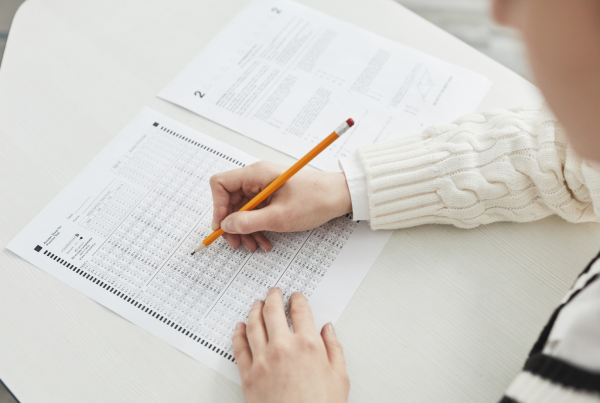 By Catherine Tierney
By Catherine Tierney
Many students expect their ACT prep will be minimal because they excel in school. Maintaining a high GPA and strong relationship with teachers is extremely important in the college admissions process. But in reality, the skills that make you “good” at school will not necessarily pay off on the ACT. Here is how the ACT is different from school.
In math, it’s not about the process
High school math teachers care greatly about the process students use to achieve their answers. They care so much that many teachers offer partial (or even full) credit for students who use the correct process to arrive at an incorrect answer. Thus, students learn to be extremely deliberate with the problem solving process, showing all their work and doing questions the “long way”. On the ACT, this wastes valuable time, and most questions can be solved more efficiently by employing a trick or shortcut like using your calculator to convert radicals into decimals or plugging in answer choices to test an equation. Math teachers hate these methods because they undermine the underlying math concepts in favor of speed and convenience. To succeed on the ACT, students will need to get comfortable using at least some of these tricks.
Your interpretation doesn’t matter
Many students balk at the thought of a standardized test assessing reading, and this is understandable given how high school students are encouraged to read. High school English classes often center on discussions; all students are invited to articulate their interpretations of the text. Teachers encourage text-to-self and text-to-world connections. Standardized tests cannot operate this way because then they would not be standardized. If the ACT allowed every student to subjectively assess the texts and relate them to his or her own life, there would not be much to test because every answer could be argued for. Thus, every correct answer is explicitly stated somewhere text and success on the test is more dependent on having a keen eye for spotting random details than on the ability to analyze and interpret.
Science class won’t help you on the Science test
High school classes focus mostly on mastery of science content (think the names of cell organelles or the arrangement of the periodic table). This is what many students expect going into the ACT which is why this section is a curveball for many students. The test does not assess knowledge of high school science content, but instead the ability to quickly analyze data and critique experiments. Because of the volume of content to cover,
With the right strategies and practice, the ACT is completely beatable. Sound study habits and strong time management skills—two things very useful in school—will help students greatly as they prepare for the ACT. Students should take a diagnostic ACT by the end of sophomore year to determine how much test preparation might be necessary to achieve their goal score.




